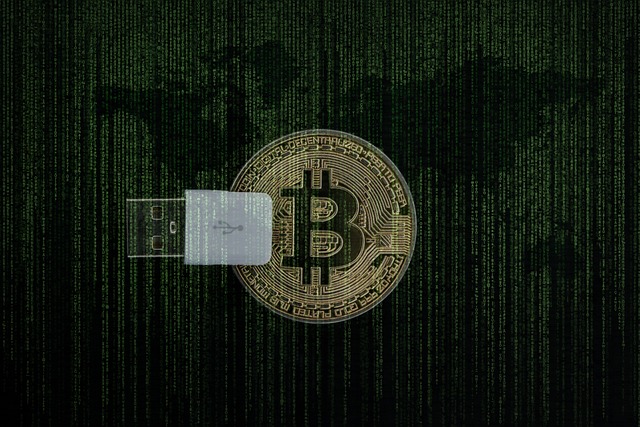Decentralized Finance Risk Factors: What to Watch Out For
Decentralized Finance Risk Factors: What to Watch Out For

Centralized points of failure: Analyze the risks posed by centralized elements within DeFi ecosystems. Discuss the importance of identifying and mitigating risks related to centralized exchanges, oracles, and custody solutions.
Centralized points of failure within the DeFi ecosystem pose significant risks that cannot be overlooked. These risks encompass centralized exchanges, oracles, and custody solutions, which play a crucial role in the functioning of decentralized finance.
One of the key risks associated with centralized exchanges is the potential for security breaches. These exchanges act as intermediaries for users to trade their digital assets. However, due to their centralized nature, they become attractive targets for hackers seeking to exploit vulnerabilities and gain unauthorized access to funds. Consequently, users face the risk of losing their assets or falling victim to theft, undermining the very principles on which DeFi is built. It is essential for users and platforms alike to identify and address these risks, such as by conducting thorough due diligence on exchanges and implementing robust security measures.
Another centralized element that requires attention is oracles. Oracles provide external data to smart contracts, allowing them to execute based on real-world information. However, relying on centralized oracles exposes DeFi systems to potential manipulation or inaccuracies in the data provided. A compromised oracle could feed false information to smart contracts, leading to incorrect executions and monetary losses. To mitigate this risk, it is crucial to develop decentralized oracles that obtain data from multiple sources, ensuring accuracy and minimizing the possibility of manipulation. Ensuring the security and reliability of oracles is crucial to maintaining the integrity of DeFi ecosystems.
Similarly, custody solutions present a centralized point of failure within the DeFi landscape. These solutions allow users to securely store their digital assets. However, if a custody provider is compromised, whether through a security breach or internal malicious actors, users’ funds are put at risk. The importance of diligently evaluating and selecting reputable custody providers cannot be overstated. Employing multi-signature wallets, where multiple parties are needed to sign off on transactions, can also enhance security by reducing the reliance on a single point of vulnerability. Recognizing the potential risks and taking measures to mitigate them is essential to safeguarding users’ assets within the DeFi space.
Overall, the risks arising from centralized points of failure within DeFi ecosystems necessitate thorough analysis and proactive risk management strategies. By identifying and mitigating risks related to centralized exchanges, oracles, and custody solutions, the foundations of decentralization and user trust can be strengthened. It is imperative that both users and platform operators are aware of these risks to ensure the long-term viability and sustainability of the DeFi landscape.
Security breaches: Shed light on the potential
Security breaches can pose significant threats within DeFi ecosystems. These breaches can occur in various forms, including hacks, phishing attacks, or even insider threats.

One of the primary areas of concern when it comes to security breaches is centralized exchanges. These platforms act as intermediaries for trading cryptocurrencies and often hold substantial amounts of users’ funds. Unfortunately, history has shown us numerous instances of centralized exchanges being targeted by hackers, resulting in massive losses for users. As a result, it is vital for users to exercise caution before entrusting their assets to centralized exchanges and for exchanges themselves to implement stringent security practices to safeguard user funds.
• Security breaches can occur in various forms, including hacks, phishing attacks, or insider threats.
• Breaches expose users’ sensitive data and funds, leading to severe consequences.
• The impact of breaches undermines trust and credibility in the DeFi space.
• DeFi projects must prioritize security measures and implement robust protocols to prevent breaches.
One area of concern regarding security breaches is centralized exchanges.
– These platforms act as intermediaries for trading cryptocurrencies and hold substantial amounts of user funds.

– Unfortunately, there have been numerous instances where hackers targeted centralized exchanges, resulting in significant losses for users.
To mitigate risks:
– Users should exercise caution before entrusting their assets to centralized exchanges.

– Exchanges themselves need to implement stringent security practices to safeguard user funds.
What are centralized points of failure in DeFi ecosystems?
Centralized points of failure in DeFi ecosystems refer to elements that pose risks due to their centralization. These can include centralized exchanges, oracles, and custody solutions.
Why is it important to identify and mitigate risks related to centralized exchanges?
It is important to identify and mitigate risks related to centralized exchanges because they can become targets for hackers, potentially leading to security breaches and loss of funds. By addressing these risks, we can work towards a more secure DeFi ecosystem.
What are oracles and why are they considered a centralized point of failure?
Oracles are services that provide external data to smart contracts in DeFi. They can become a centralized point of failure because if the oracle is compromised or manipulated, it can provide incorrect data to smart contracts, leading to financial losses for users.
How do custody solutions pose risks in DeFi ecosystems?
Custody solutions refer to the storage of digital assets. If a custody solution is centralized and experiences a security breach, it can result in the loss of funds for users. Proper risk identification and mitigation are essential to safeguarding these assets.
How can risks related to centralized points of failure be mitigated in DeFi ecosystems?
Risks related to centralized points of failure can be mitigated by implementing decentralized alternatives, conducting thorough security audits, and employing robust security measures. Additionally, diversifying assets across different platforms can help reduce the impact of any potential breaches.
Why do security breaches shed light on the potential risks in DeFi ecosystems?
Security breaches serve as a wake-up call, highlighting the vulnerabilities and potential risks within DeFi ecosystems. By learning from these incidents, the community can work towards implementing stronger security measures and ensuring the safety of users’ funds.
Todays Featured Product:
Buy, exchange and grow your crypto securely with a Ledger hardware wallet, combined with the Ledger Live app. It’s never been easier to keep your crypto safe and accessible. Buy direct from Ledger.com and get todays Special Offers Here.




